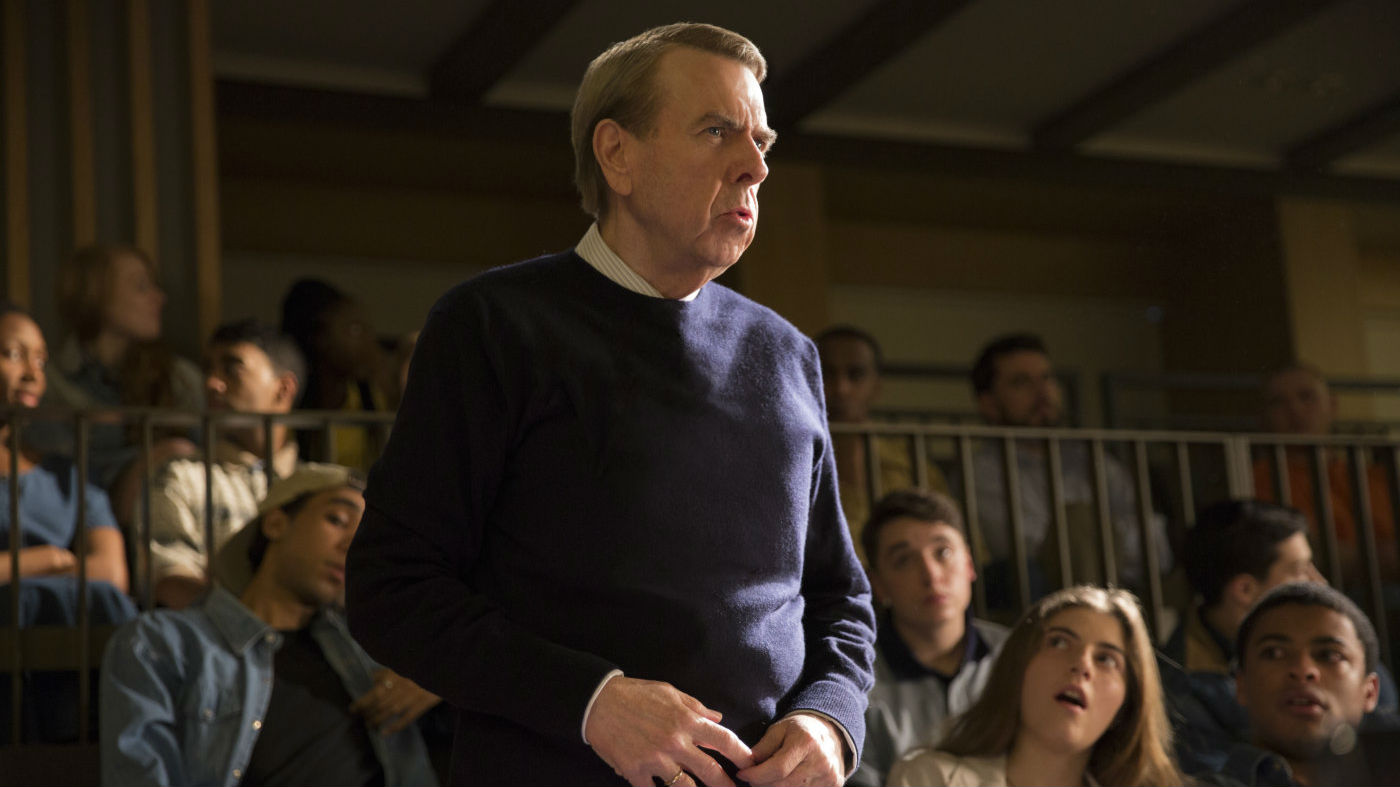Denial: Why Holocaust legal drama is so relevant today
In an era of 'alternate facts', a new film about David Irving's libel battle argues for the value of truth

A free daily email with the biggest news stories of the day – and the best features from TheWeek.com
You are now subscribed
Your newsletter sign-up was successful
Denial explores the true story of a courtroom battle between two historians over the existence of the Holocaust. Here is what you need to know about it and why some critics say it's more relevant than ever.
What's the film about?
Denial is based on the acclaimed non-fiction book History on Trial: My Day in Court with a Holocaust Denier by US historian Deborah E Lipstadt.
The Week
Escape your echo chamber. Get the facts behind the news, plus analysis from multiple perspectives.

Sign up for The Week's Free Newsletters
From our morning news briefing to a weekly Good News Newsletter, get the best of The Week delivered directly to your inbox.
From our morning news briefing to a weekly Good News Newsletter, get the best of The Week delivered directly to your inbox.
History on Trial documents Lipstadt's 1996 legal battle with British historian David Irving, who claimed she had libelled him in her book Denying the Holocaust. Lipstadt had accused Irving of manipulating and distorting evidence to support his claims as Holocaust denier, which he said was highly damaging to his reputation as a serious historian.
Under British law, the burden of proof in libel cases is on the accused, so Lipstadt and her legal team were forced to prove that parts of the Holocaust had indeed occurred and that a fair-minded historian would not doubt it.
In his High Court ruling, Mr Justice Gray ruled in her favour, finding it to be "substantially true" that Irving "persistently and deliberately misrepresented and manipulated historical evidence", that he was an "active Holocaust denier" and that he was "anti-Semitic and racist".
Who's involved?
A free daily email with the biggest news stories of the day – and the best features from TheWeek.com
Mick Jackson (LA Story) directs the film with a script by playwright David Hare (Skylight). Lipstadt is played by Rachel Weisz and her barrister, Richard Rampton, is portrayed by Tom Wilkinson, with Andrew Scott also on the legal team. Timothy Spall (Mr Turner) stars as Irving.
What do the critics think?
"You could call Denial less a feature film, more a glorified telly play" because it's "focused, small-scale, monothematic", says Nigel Andrews at the Financial Times. It's also "probing, witty and compelling", adds the critic, with a "terrific script" giving "topical resonance" to the case.
Robbie Collin at the Daily Telegraph says Lipstadt's day in court has been dramatised with "keen fidelity to argument and counter-argument". It does feel like it's made for television, he adds, but that's not a bad thing as it's "simple, stripped-back approach suits incendiary material which doesn't need extra heating up".
Stephanie Merry at the Washington Post, however, complains that Denial is "tasteful, to a fault" - you won't hear anyone shouting something like "You can't handle the truth," from the stand. No one will ever accuse it of taking sensational liberties with the truth, admits Merry, but: "Where is the excitement?"
Why is it relevant?
As flat-earthery returns to the world, Denial is "refreshing and very pertinent", writes Peter Bradshaw at The Guardian. This is a film that "reasserts the primacy of truth", he adds: "What a tonic."
Sophie Gilbert at The Atlantic says the film shows how Lipstadt's team sense Irving's overwhelming desire is for attention and refuse to give it to him. Its message for political spectators nowadays is perhaps that the "best way to deal with liars, hucksters, con men and bigots is to refuse to acknowledge them - to cast them off into a corner and let them conspiracy-theorise their way into hysteria", she adds.
Do people still deny the Holocaust?
Yes. You only need to look in the comments section of the trailer on YouTube. Lipstadt told Time magazine that deniers have increasingly tried to make their assertions look more academic with footnotes and conferences. She also blames a shift in academia towards deconstruction, which questions the nature of truth.
Today, conspiracy theorists and "people with outlandish ideas that do not correspond to the facts" are more able to promote their ideas than ever before, she says, adding: "If some people take away from this movie the notion that there's a difference between facts, opinions and lies, I will be very satisfied."
Denial opens in UK cinemas today.
-
 How Democrats are turning DOJ lemons into partisan lemonade
How Democrats are turning DOJ lemons into partisan lemonadeTODAY’S BIG QUESTION As the Trump administration continues to try — and fail — at indicting its political enemies, Democratic lawmakers have begun seizing the moment for themselves
-
 ICE’s new targets post-Minnesota retreat
ICE’s new targets post-Minnesota retreatIn the Spotlight Several cities are reportedly on ICE’s list for immigration crackdowns
-
 ‘Those rights don’t exist to protect criminals’
‘Those rights don’t exist to protect criminals’Instant Opinion Opinion, comment and editorials of the day